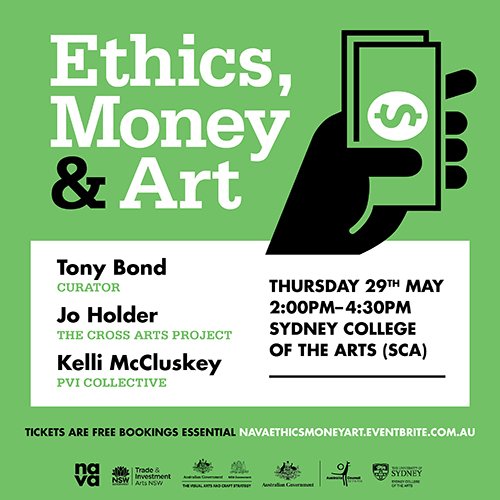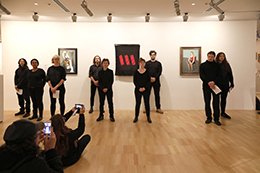Some artists threatened to withdraw their participation in the 2014 Biennale of Sydney due to a funding relationship with Transfield who were also contracted to provide services to refugee detention centres. In response to the protest and its consequences, the then Federal Arts Minister, Senator George Brandis instructed the Australia Council to develop a policy which would make its funding conditional on artists or organisations not 'unreasonably' refusing to accept or continue private sector support.
NAVA believes that the relationships between givers and recipients of private sector support are particular to every case and are based on mutual regard or benefit. The ethical standards which underpin the relationship need to be decided between the parties to the agreement, not by government.
However, as the peak body responsible for setting best practice standards for the industry, NAVA supports the initiative to try to offer guidance to the arts sector about what risk factors they might wish to take into account in entering into a relationship with either a private or public sector supporter.
NAVA contends that a policy which makes public funding conditional on the acceptance of private sector support could severely compromise members of the arts sector's ability to make their own decisions on ethical or any other grounds. Though there is a majority of companies and philanthropic individuals whose support would be and is greatly valued, some have programs which could be completely antithetical to the values and principles of the artists or organisations concerned.
Artists and art organisations must be granted freedom of choice as to what kinds of sponsors or philanthropists they allow their name, arts activities and reputation to be publicly associated with. To disallow artists or arts organisations the opportunity to exercise their right of refusal as a condition of government funding would seem entirely unreasonable.











